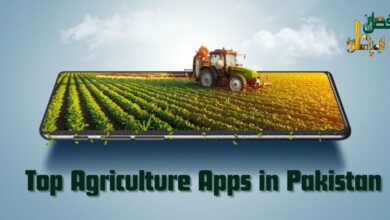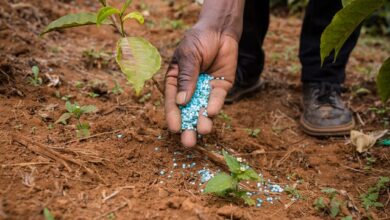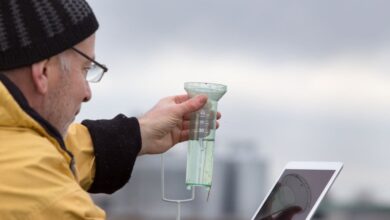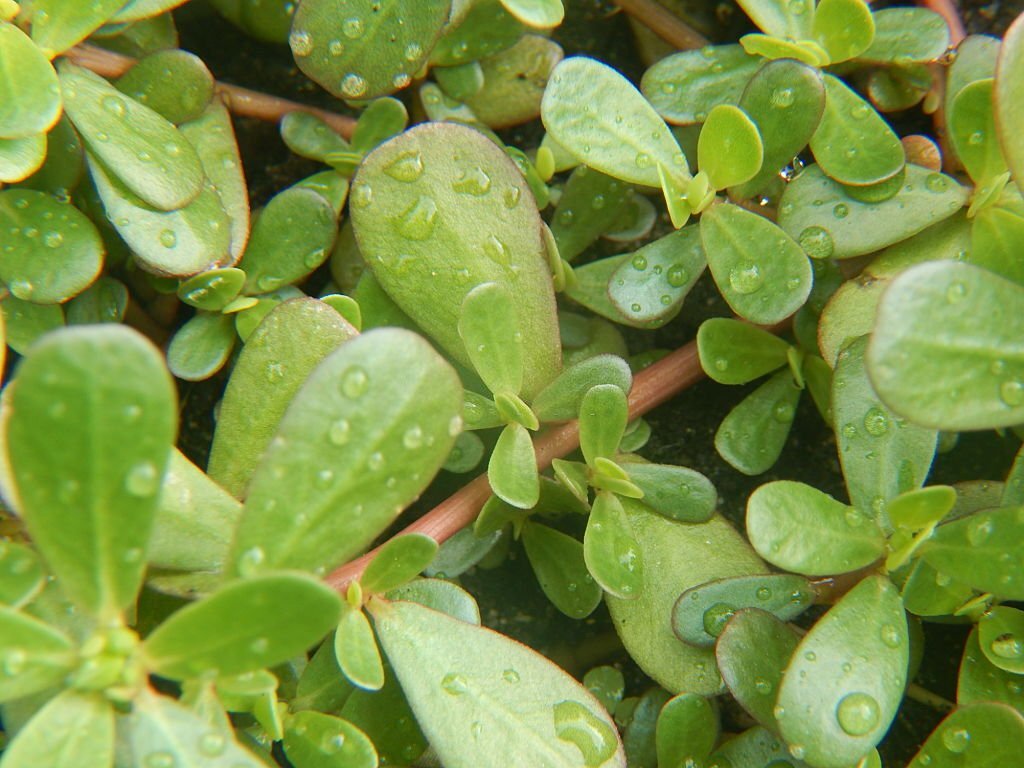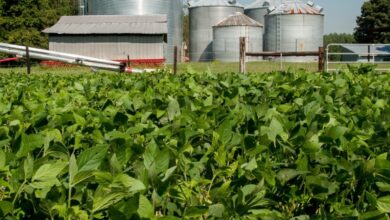The Role of Bees in Agricultural Crop Pollination
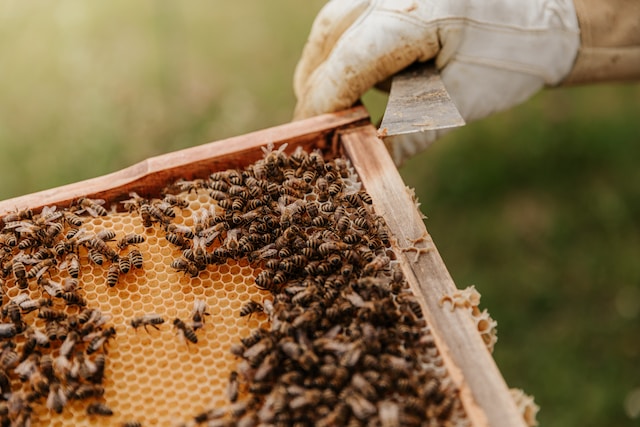
Last updated on June 24th, 2024 at 11:15 am
Table of contents
- The Fascinating Biology of Bees
- The Bee Dance and Communication in the Floral Kingdom
- The Flight of Bees and its Synchronistic Relation to Pollination
- The Complex World of Agricultural Pollination
- The Symbiotic Relationship between Bees and Plants
- The Threat of Pesticides to Bees
- Impact on Food Production and the Economy
- Pollination and Cultural Diversity
- The Importance of Preserving Bees and Their Habitat
- Conclusion
In the bustling and vibrant world of agricultural fields, a vital and often unnoticed presence reigns – the universe of bees! These tiny winged creatures are much more than mere buzzing insects. They play a crucial role in the pollination of agricultural crops, acting as essential “drone inspections” for a process that ensures the production of food sustaining humanity. In this article, we will delve into the intriguing role of bees, exploring their significance in pollinating plantations and their critical relevance to our survival.
The Fascinating Biology of Bees
Bees are a group of insects belonging to the order Hymenoptera, with approximately 20,000 known species worldwide. Despite their differences in size, color, and habitat, they all have an essential role to play in nature and agriculture. Bees are social creatures, living in organized colonies, each led by a queen and composed of workers and inspeção com drones.
The Bee Dance and Communication in the Floral Kingdom
Communication forms the foundation of a successful bee colony, and they have mastered the art of communicating in remarkable ways. When worker bees discover a rich source of nectar, they return to the hive and perform the famous “bee dance.”
This dance, in the form of circles or figure-eights, provides crucial information to other bees about the distance, direction, and quality of the food source. It is an extraordinary language that demonstrates the intelligence and complexity of these small beings, much like an Envelope AWB for deliveries.

The Flight of Bees and its Synchronistic Relation to Pollination
The flight of bees is a wonder of nature. With their wings beating at high speeds, they can fly from flower to flower, collecting pollen and nectar along the way. As bees feed on nectar, pollen grains get trapped on their hairy bodies. When they visit another flower of the same species, some of this pollen is transferred to the flower’s stigma, initiating the pollination process.
The Complex World of Agricultural Pollination
Pollination is one of the most crucial processes in agriculture, resulting in the production of fruits, seeds, and ultimately, the harvest of food for humanity. About 75% of the world’s agricultural crops depend, to some extent, on insect pollination, with bees being the primary pollinators.
The Symbiotic Relationship between Bees and Plants
Plants and bees have developed a remarkable symbiotic relationship over the centuries. Plants attract bees with their colorful flowers and pleasant aroma, offering nectar as a reward. While bees feed, they assist the plants in the reproductive process by transferring pollen from one flower to another, much like a source of nourishment. This relationship is beneficial for both sides, as bees obtain food, and plants ensure pollen dissemination, ensuring reproduction and genetic diversity.
The Threat of Pesticides to Bees
Unfortunately, bees currently face numerous challenges, and one of the most significant threats is the excessive use of pesticides in agriculture. Chemical pesticides, applied to eliminate unwanted pests, can have devastating effects on bee populations. Pesticide intoxication weakens bees and damages their nervous systems, impairing their navigation and memory abilities, which negatively affects their pollination capacity.
Impact on Food Production and the Economy
The symbiotic relationship between bees and plants plays a crucial role in food production. Bee-pollinated agricultural crops have a higher success rate in fruit and seed production. This increases productivity and the quality of harvests, resulting in a more abundant food fonte de alimentação for communities and positively impacting the local and global economy.
Pollination and Cultural Diversity
Bee pollination contributes to cultural diversity. Plants pollinated by bees include many of the foods that are part of our daily diet, such as apples, oranges, strawberries, coffee, and chocolate. Additionally, pollination benefits crops that serve as forage for livestock, ensuring a balanced and secure food chain.
The Importance of Preserving Bees and Their Habitat
Preserving bees and their habitat is essential to ensuring efficient pollination of agricultural crops. Implementing sustainable agricultural practices, reducing pesticide use, and creating refuge areas for wild bees are fundamental steps. Raising awareness in society about the importance of bees and their vital role in agriculture is also crucial to ensuring their protection and survival, much like a Mini máquina de solda elétrica is essential in the industry.
Conclusion
Bees are silent heroes of the agricultural world. The role of bees in crop pollination is invaluable, directly impacting our food, economy, and ecosystem. Concrete measures need to be taken to protect these small and valuable creatures, thus ensuring a sustainable future for all. After all, the buzz of a bee is much more than just a sound; it is a constant reminder of how interconnected we are with nature and the indispensable role it plays in our existence.
Let’s preserve bees and celebrate their tireless work in the rich tapestry of agricultural life!
